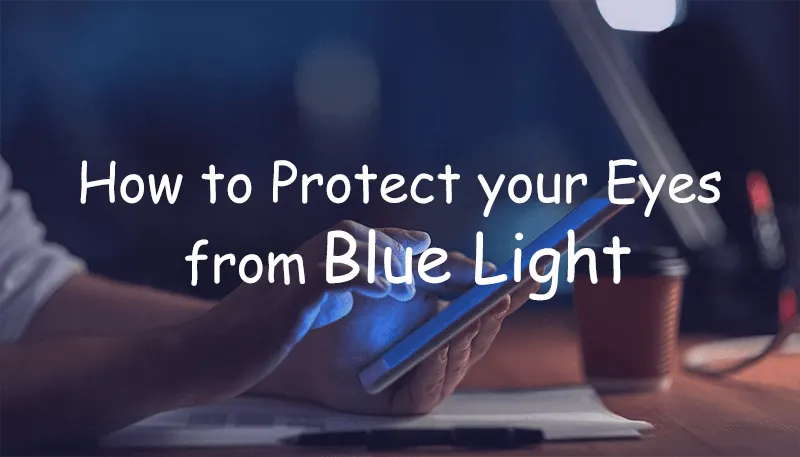How To Protect Your Eyes From Blue Light Damage

How To Protect Your Eyes From Blue Light Damage
Blue light is a type of high-energy visible (HEV) light that is emitted by digital screens, LED lights, and the sun. While blue light has some benefits, such as regulating our sleep-wake cycle, prolonged exposure to blue light can lead to a range of vision problems, including digital eye strain, dry eyes, and macular degeneration. In this blog post, we will cover some simple and effective ways to protect your eyes from blue light damage.
Use Blue Light Filters
One of the most effective ways to protect your eyes from blue light damage is to use blue light filters on your digital screens. Many devices now come with built-in blue light filters, but if yours doesn't, there are many software and app options available that can be downloaded to help reduce blue light emissions from your screen.
Take Frequent Breaks
Staring at a screen for prolonged periods can cause eye strain and fatigue, which can be exacerbated by blue light exposure. To reduce the risk of eye strain, it's essential to take frequent breaks from your screen. The American Optometric Association recommends following the 20-20-20 rule: take a break every 20 minutes and look at something 20 feet away for at least 20 seconds.
Wear Blue Light Blocking Glasses
Blue light blocking glasses are specially designed glasses that block or filter blue light. These glasses can be worn while working on digital devices or even when outside in bright sunlight. They are an excellent way to protect your eyes from blue light damage, especially if you spend long hours working on a computer or using your smartphone.
Adjust Your Screen Settings
Most digital devices allow you to adjust the brightness, contrast, and color temperature of your screen. Reducing the brightness and adjusting the color temperature to a warmer setting can help reduce the amount of blue light emitted by your screen, which can help protect your eyes from blue light damage.
Use Proper Lighting
Proper lighting can help reduce the amount of blue light emitted by your screens. To reduce blue light exposure, use dimmer and warmer lighting in your home and work environment. Additionally, try to position your computer screen so that it's not directly facing a window, which can increase the amount of blue light entering your eyes.
In conclusion, protecting your eyes from blue light damage is essential for maintaining good vision health, especially in today's digital age. By following the tips outlined in this blog post, you can reduce your risk of blue light damage and enjoy the many benefits of healthy eyesight. However, if you are experiencing vision problems or have a family history of eye disease, it's essential to see an eye doctor regularly for routine check-ups and advice on maintaining good vision health.
